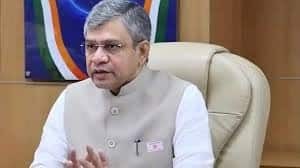Business
How multifamily offices are playing commercial real estate

A version of this article first appeared in the CNBC Property Play newsletter with Diana Olick. Property Play covers new and evolving opportunities for the real estate investor, from individuals to venture capitalists, private equity funds, family offices, institutional investors and large public companies. Sign up to receive future editions, straight to your inbox.
The family offices of high-net-worth investors are increasingly pouring their money into alternatives, and real estate is high on their list. For some, instead of going it alone, they’re joining forces in multifamily offices.
The multifamily office model lets these investment arms of wealthy families pool resources, share expertise and unlock bigger deals. With more than $12 billion under management, Realm is a multifamily office investment platform specializing in commercial real estate. The typical family using Realm has about $200 million in investable assets.
CNBC spoke with its CEO, Travis King. Here are some highlights from the conversation, edited for length and clarity:
Property Play: Why go multifamily?
Travis King: We are better investors collectively than we would be individually. So what that means is we’re combining not only capital, but also our collective trusted relationships and industry knowledge and geographic knowledge to find and execute better investment decisions.
You’ve seen big allocations amongst the institutions. They’ve all grown their real estate allocations, in some cases, from low single digits to, in some cases,10% or more allocation-wise. You still don’t see that with a lot of the family offices, although there’s a strong desire to do so.
So I think that next horizon is going to be finding ways to access direct real estate with these families that will allow them to be able to diversify a little bit more and enjoy some of those benefits of real estate that have been a little bit elusive unless you wanted to actually buy that real estate yourself, which can tend to be very time intensive, for sure, and, a lot of times, requires a pretty large dedicated staff.
PP: How do you play real estate?
TK: Real estate is evolving, right? There’s never one thing that you want to be focused on in real estate. I think that’s part of what gives us a leg up. … You’ve heard the adage ‘location, location, location,’ and that’s true. I think that continues to be a very true adage. What we find is that we’re unique in that we move across property type and across geography. So given the scale that we have as an organization with, I think collectively, north of $12 billion in investable assets amongst these families that we work with, we have the ability to see a lot of different deal flow in a lot of different areas.
In real estate, there’s a macro-cycle, and that cycle is always very important. You don’t want to swim against the tide. You also don’t want to, you know, try to fight the cycle. But there’s micro-cycles that happen in different geographies and within different property types, so that’s a key thing to consider.
PP: So of the many CRE sectors, what’s your fave?
TK: If you look at this point in time, what we think is interesting, you’ll start with office. I think in a lot of areas, we’re starting to see office really be in an area where we think that pricing has kind of bottomed. And you know that because when we start looking at some of these investment decisions — we’re looking at one right now in Northern California — it becomes less of, ‘Hey, would we like this if it were just a little bit cheaper?’ And it starts to get to the point where that’s not really the question anymore. It really gets down to saying, ‘We know it’s cheap. It’s intrinsically cheap.’ In some cases, we’re buying things at 15% of replacement cost.
Realm CEO Travis King
Courtesy of Realm
PP: What are you staying away from?
TK: What I try to stay away from are broad categories, right? Say, for example, like, well R&D or industrial is going to be over. These things cycle, and there’s going to be different points in time. So I think the market, by and large … they look at things and say, ‘OK, data centers, you know, they’ve been over invested, and now there’s too much capital in data centers.’ We particularly were, we’re not really in data centers in a large way, because we focus on that lower middle market.
PP: Isn’t everybody in data centers?
TK: Yeah, but it’s the big boys in data centers, right? I’m trying to find an angle where we have something that others don’t. If you look at the big boys that have got tens of billions of dollars in their fund to be able to invest, there’s a lot of dollars required to do the infrastructure in the data center. We really focus on, kind of $50 million deals and below, because we feel like we’ve got an edge there. So yes, everyone is in data centers, but it’s one of those things where a lot of people are saying, ‘Wow, there’s a lot of money chasing this. It might be late in the cycle.’ I tend to probably agree with that, but it’s also just outside of the realm of where we’re trying to invest.
PP: How does your business change if interest rates come down?
TK: I would say reducing interest rates helps real estate in most every regard. I think first and foremost, it’s going to help transaction volume. I think it just provides a wind to the sails of transactions, and it raises the value of all real estate.
Business
Strategic sovereignty a guiding imperative in reshaping global economy, say CEOs – The Times of India

NEW DELHI: In a rapidly reshaping global economy, strategic sovereignty has emerged as a guiding imperative, as nations navigate global supply chains while safeguarding critical capabilities in an increasingly fragmented world, global business leaders said. During a panel discussion, KPMG India CEO Yezdi Nagporewalla, global leaders across new age economy, technology and defence, financial inclusion, and consumer sectors, discussed the challenges and opportunities of operating in a fragmented global economy.Highlighting the core of strategic sovereignty in a world of global supply chains, General Atomics Global Corporation CEO Vivek Lall, chief executive of, said, “It is about reducing vulnerability to geopolitical choke points, whether in energy, technology, manufacturing, logistics, or data. Strengthening domestic capabilities while building trusted international partnerships is critical, and it is equally important to develop resilience against any potential choke points. As the global community moves forward, the underlying theme is going to be human resource training and human resource knowledge, capabilities. This is often underemphasized, but at the root of strategic sovereignty is a strong focus on human resource development.”Talking about how strategic sovereignty is reshaping the flow of global capital, Kishore Moorjani CEO – Alternatives, Private Funds CapitaLand Investment said, “Perhaps there’s no better place to see that in action than in India. When the country began liberalising over 30 years ago, it was hungry for capital and attracted significant foreign institutional investment. While FII capital is important, it can be fickle. Today, the situation has reversed: capital is chasing India… We respect the sovereignty of the markets we operate in and align our investments accordingly. We come to build India, not just trade.”Discussing the role of financial institutions in building national resilience, Mary Ellen Iskenderian, president & CEO of Women’s World Banking, said, “True economic resilience depends on inclusive access to savings, credit, insurance, and digital payments. Financial inclusion strengthens households and communities, particularly in the face of climate shocks and economic volatility, reinforcing national stability from the ground up.”On the question of how consumer brands maintain core identity while navigating local cultures, regulations, and consumer expectations, Mike Jatania, CEO and chairman The Body Shop & co-founder of Aurea, said: “For brands operating across borders, maintaining identity while respecting national priorities is essential. If your brand has a clear purpose and core values, it can adapt locally without losing its identity. Purpose, transparency, and trust are economic currency.”
Business
Video: How ICE Is Pushing Tech Companies to Identify Protesters

new video loaded: How ICE Is Pushing Tech Companies to Identify Protesters
By Sheera Frenkel, Christina Thornell, Valentina Caval, Thomas Vollkommer, Jon Hazell and June Kim
February 14, 2026
Business
52 reforms in 52 weeks: Ashwini Vaishnaw outlines massive railway overhaul for 2026

Indian Railways has reached a global milestone in freight operations, securing its position as a premier international logistics hub. Union Minister for Railways, Ashwini Vaishnaw, announced today that the national carrier has achieved an unprecedented scale in its logistics division. Highlighting this achievement, the Minister stated, “Indian Railways has become the second-largest cargo carrier in the world.”
Building on this momentum, the Ministry has prepared a rigorous roadmap for the upcoming year aimed at systemic transformation. The government plans to roll out a series of weekly initiatives to modernise every facet of rail travel and transport. Vaishnaw explained the structured timeline, saying, “For 2026, Railways has resolved to implement 52 reforms in 52 weeks.”
The initial phase of this plan will prioritise the passenger experience, with a focus on improving the quality of onboard facilities. The Minister identified the primary starting point for this year-long agenda, noting, “The first reform is better onboard services in Railways.”
In addition to passenger amenities, the government is placing strong emphasis on the “Gati Shakti” initiative to streamline the nationwide movement of goods. This strategic focus is designed to strengthen the country’s supply chain. Vaishnaw confirmed the freight sector’s priority, adding, “The second concerns ‘Gati Shakti Cargo.’”
A cornerstone of the 2026 agenda is a comprehensive overhaul of sanitation and hygiene standards. The Ministry has developed a new blueprint to ensure that the rail network’s cleanliness meets global benchmarks. Detailing the specifics of the first major initiative, the Minister remarked, “Reform number one for 2026 will ensure proper end-to-end cleaning of the Railways… The concept of a clean rail station has been established.”
This cleanliness drive is not a short-term measure but a multi-year commitment to cover the entire Indian Railways fleet. The implementation will be phased to ensure thoroughness and consistency. Vaishnaw clarified the timeline, stating, “Over three years, this reform will be implemented across all trains.”
To ensure the success of these reforms, the Ministry is introducing a robust accountability framework. These measures will include performance-based contracts and the integration of modern digital tools to monitor progress in real time. Emphasising the shift towards professional and technology-driven management, the Minister concluded, “There will be clearly defined service-level agreements… There will be extensive use of technology.”
-

 Entertainment1 week ago
Entertainment1 week agoHow a factory error in China created a viral “crying horse” Lunar New Year trend
-

 Business5 days ago
Business5 days agoAye Finance IPO Day 2: GMP Remains Zero; Apply Or Not? Check Price, GMP, Financials, Recommendations
-

 Tech1 week ago
Tech1 week agoNew York Is the Latest State to Consider a Data Center Pause
-

 Fashion4 days ago
Fashion4 days agoComment: Tariffs, capacity and timing reshape sourcing decisions
-

 Tech1 week ago
Tech1 week agoNordProtect Makes ID Theft Protection a Little Easier—if You Trust That It Works
-

 Tech1 week ago
Tech1 week agoPrivate LTE/5G networks reached 6,500 deployments in 2025 | Computer Weekly
-

 Business1 week ago
Business1 week agoStock market today: Here are the top gainers and losers on NSE, BSE on February 6 – check list – The Times of India
-

 Business1 week ago
Business1 week agoMandelson’s lobbying firm cuts all ties with disgraced peer amid Epstein fallout













